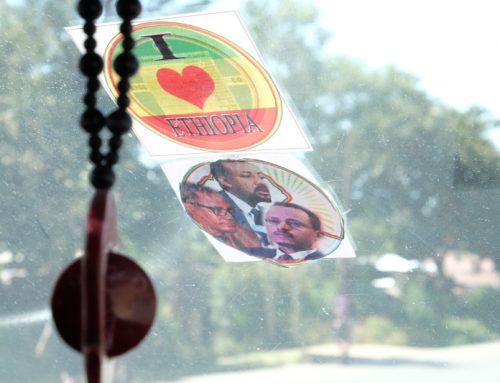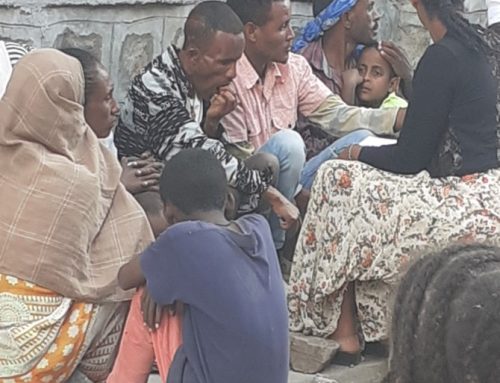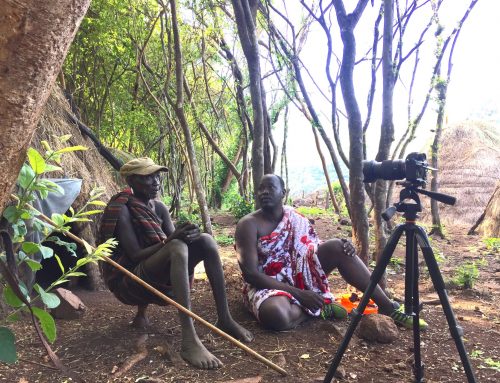Mercy Fekadu Mulugeta, Yodahe Abebe, Fitsumbirhan Araya, Wongel Abebe
This timely research is experimenting with online political engagement. Citizens in Ethiopia are increasingly using social media and other online platforms to voice their political opinions and to protest and an estimated 60% of Standing Committee chairpersons in the House of People’s Representatives (HPR) use social media to try and win political support. With the support of a GRNPP Grant, Mercy Mulugeta (lead investigator) and her team (BRIDGE 4 Participation) explored how to bring parliamentarians and their constituents together as part of an inclusive, interactive, online political community . Bringing together arts and humanities, and creative experts from across the social sciences, journalism, filmmaking, and information technology, Mercy began by trying to understand how politicians and people currently engage with each other, and what the barriers, opportunities and needs are around strengthening political dialogue and trust.
Here is Mercy Mulugeta reflecting on the interdisciplinary team she brought together for the project: “We are a young, experienced, and dynamic team, invested in Ethiopia’s democratic future. So it made sense to bring together all our expertise – across a range of arts and humanities disciplines, and with some much-needed computer and app-building experience – to see how we can actively contribute to the democratic project that is underway in our country.”
Based on their analysis of data generated at workshops with 7 MPs and 38 student citizens in Addis Ababa, the BRIDGE 4 Participation team developed a dedicated web-based application that works across all devices, and that enables parliamentarians and citizens to engage in inclusive and interactive scrutiny, inquiry and debate about issues and policies of local, regional and national significance to their lives.
Fitsumbirhan Araya, who is the technical wizard behind the application’s production, explains that it was important for the process of building, testing, and reviewing the platform to be fully consultative: “We brought the study participants together after the draft application was ready, showed them its functions and features, and had them try it out and provide feedback. This helped us enhance its design and maximise its utility. And initial feedback from the study participants is that online interactive platforms and tools may be pivotal in the effort to build political trust and transition to democracy.”
The BRIDGE website-based application continues to be curated and analysed by the team for its functionality and impact in helping transform (1) political engagement and representation, (2) people’s perceptions of politicians, and (3) political decision-making. And since piloting the scheme they have been invited to share the processes and key findings with stakeholders and policy- and decision-makers, including the House of People’s Representatives secretariat, His Excellency Mr Tagesse Chaffo (House Speaker) Mr Kereyyu Banata (House Communications Director).
“Without doubt,” says GRNPP Director Emma Crewe reflecting on the decision to award Mercy and her team a P4P Grant, “the BRIDGE 4 Participation project is a critical intervention in the pursuit of political dialogue and visibility. It emerges from an Ethiopian context, draws on Ethiopian passion and skills, and seeks an Ethiopian solution. It is truly innovative. And it is the mark of an excellent research project that its methods, processes, and impacts can be extrapolated to other countries across the Global South, as well as in the Global North, where democratic relationships are at stake.”




